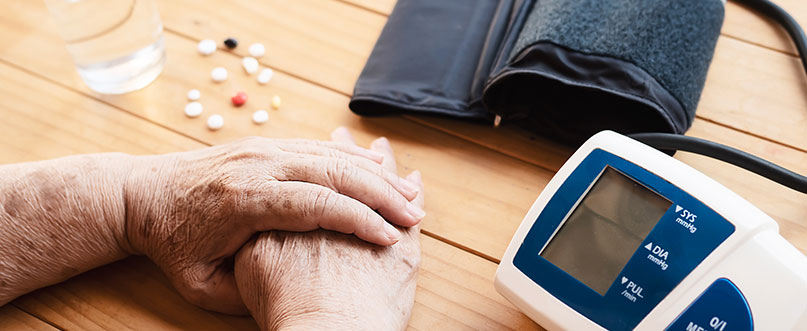Hypertension And The Risk Of Dementia

Table of Contents
High blood pressure is commonly referred to as the silent killer. Because in addition to causing heart disease and stroke, it also negatively affects our cognitive abilities. Research shows that high blood pressure and dementia are closely related. A research study published by the American Heart Association Journal for Hypertension has found this conclusion. The research stated that even slightly elevated blood pressure was the cause of a cognitive decline in young adults and middle-aged men.
These are startling research findings, as The World Health Organization estimates that more than 1 billion people have high blood pressure and that increasing numbers of people – including those in their 20s and 30s – are affected by the condition. The prevalence of hypertension or high blood pressure in adults and young adults is increasing daily.
But, the study also revealed that the effective treatment of high blood pressure significantly reduced cognitive decline later in life.
Research Findings
The research was conducted on data from a study comprising blood pressure and cognitive health function of 7,000 adults. The average study participant age was 59 years, and the participants were followed for 4 years. They underwent tests of their memory, executive function, and verbal fluency.
The research study revealed that adults with untreated hypertension with no use of medications for their condition experienced a quicker decline in cognitive function in middle-aged or older adults.
The study also revealed that cognitive decline occurred regardless of when the person experienced hypertension. This means that even for a small duration, heightened blood pressure can deteriorate a person’s cognitive functions.
Thus, effective management and treatment of hypertension are crucial to preserving cognitive function during the middle and later stages of life.
Vascular and brain health
High blood pressure is defined as 140/90 mm Hg or higher. It’s called high because the force of blood against the walls of the arteries is greater than normal.
The brain is a vascular organ, with blood vessels near the tissue. There is also evidence that hypertension and high blood pressure can cause damage to both the brain and the blood vessels themselves.
The blood vessels of the brain are particularly sensitive to changes in pressure. This is because they are so narrow that even a small change in pressure can cause them to become blocked. This kind of blockage causes a stroke. A stroke occurs when a clot or bleeding cuts the blood supply to part of your brain into an artery. A stroke affects the function of any part of your body controlled by that part of your brain, which includes everything from movement to speech.
High blood pressure can lead to an increased risk of developing dementia and other forms of cognitive impairment. Researchers found that participants who had diastolic blood pressure (the lower of two numbers in a blood pressure reading) above 80 mm Hg (millimetres of mercury) had an 11 per cent increased risk of mild cognitive impairment or dementia compared with people who had normal diastolic blood pressures below 80 mm Hg. They also found that participants with diastolic blood pressure readings above 90 mm Hg had an 18 per cent increased risk of mild cognitive impairment or dementia compared to those with normal diastolic readings below 90 mm Hg.
How to reduce the risk of hypertension-related cognitive decline
The good news is that you can do things to reduce your risk of developing high blood pressure and health issues associated with hypertension. The research revealed that treating high blood pressure at any age reduced the probability of cognitive decline.
There are several methods to treat hypertension effectively. Lifestyle changes such as eating healthier and exercising more often can help lower your overall risk of developing high blood pressure-related illnesses like heart disease or stroke. Regular monitoring of blood pressure goes a long way in treating hypertension. Apart from maintaining a healthy lifestyle, only one or two medications should be taken if prescribed by a medical practitioner to effectively manage and maintain hypertension.
Final Thoughts
Taking simple steps to make healthier lifestyle choices can greatly reduce your risk of high blood pressure. If you have been diagnosed with hypertension, you can find medically sound advice on BPinControl to help alleviate your medical condition.
Disclaimer
The information contained in this article is to educate, spread awareness in relation to hypertension and other diseases to the public at large. The contents of this article are created and developed by BPinControl.in through its authors, which has necessary, authorisations, license, approvals, permits etc to allow usage of this articles on The Website. The views and opinions expressed in this article are views, opinions of the respective authors and are independently endorsed by doctors. Although great care has been taken in compiling and checking the information in this article, The Website shall not be responsible, or in any way liable for any errors, omissions or inaccuracies in this article whether arising from negligence or otherwise, or for any consequences arising therefrom. The content of this article is not a substitute for any medical advice. The Website shall not be held responsible or liable for any consequence arising out of reliance on the information provided in the article.


Comments (0)
No comments found.Add your comment